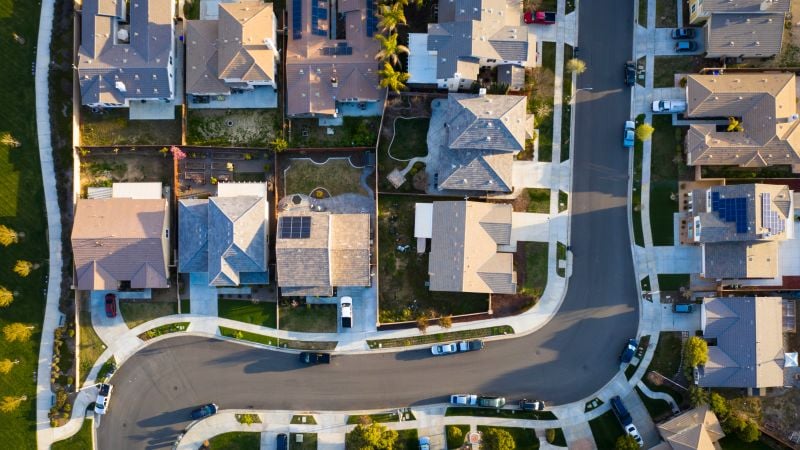After 33 years and four children, Baby Boomers Marta and Octavian Dragos say they feel trapped in what was once their dream home in El Cerrito, California.
Both over 70, the Dragos are empty nesters, and like many of their generation, they’re trying to figure out how to downsize from their 3,000-square-foot, five-bedroom home.
“We are here in a huge house with no family nearby, trying to make a wise decision, both financially and for our well-being,” said Dragos, a retired teacher.
But selling and downsizing isn’t easy, appealing or even financially advantageous for many homeowners like the Dragos family.
Many Boomers whose homes have surged in value now face massive capital gains tax bills when they sell. This is a kind of tax on the profit you make when selling an investment or an asset, like a home, that has increased in value.
Plus, smaller homes or apartments in the neighborhoods they’ve come to love are rare. And with current prices and mortgage rates so high, there is often a negligible cost difference between their current home and a smaller one.



The issue is that they sold a large home and bought a small home and had very little money left over. It doesn’t make financial political sense to do that. They might as well stay where they are. There is little incentive to downsize.
Part of the solution to the housing crisis is solving that incentive problem.
Aww, poor them. They only had enough left over to pay fully for their next place and pocket $50k.
As long as you ignore property taxes and maintenance costs. Which normal people don’t ignore.
Maintenance costs are probably fairly minimal given how little wear and tear happens in an empty nest. And property taxes for elderly folks are usually frozen or nearly frozen in place - meaning the next buyer will be paying a much higher tax on the same house because they won’t qualify for those exemptions.
It seems like you don’t own a home, so I’m not sure there’s much point in continuing this conversation.
To the contrary - I own a large home in an urban area and it is filled with my children. But we don’t have to have a conversation - I was only pointing out the flaws in your logic. My tax bill will be $12k this year while my elderly next door neighbor’s will be a fraction of that. Our homes are identical (3k sqft over 3 floors). She’s not leaving because it would make little financial sense to do so. This is quite common.
Sounds like one of those people that doesn’t take a raise because it’ll put them in a new tax bracket. People that don’t know how the adult world works.
The have their new property paid for and also have a much smaller property tax bill and lower maintenance costs. There’s still plenty of incentive to downsize.
Paying taxes on profit might hurt a little, but it’s a good problem to have.
What? They would have a much bigger property tax bill
If their smaller new house is worth less than their original the property tax bill will be less. This is one of the incentives to downsizing.
That’s not how property taxes work in California. They’re likely paying way less than they would be if they bought a new house, even if it was smaller